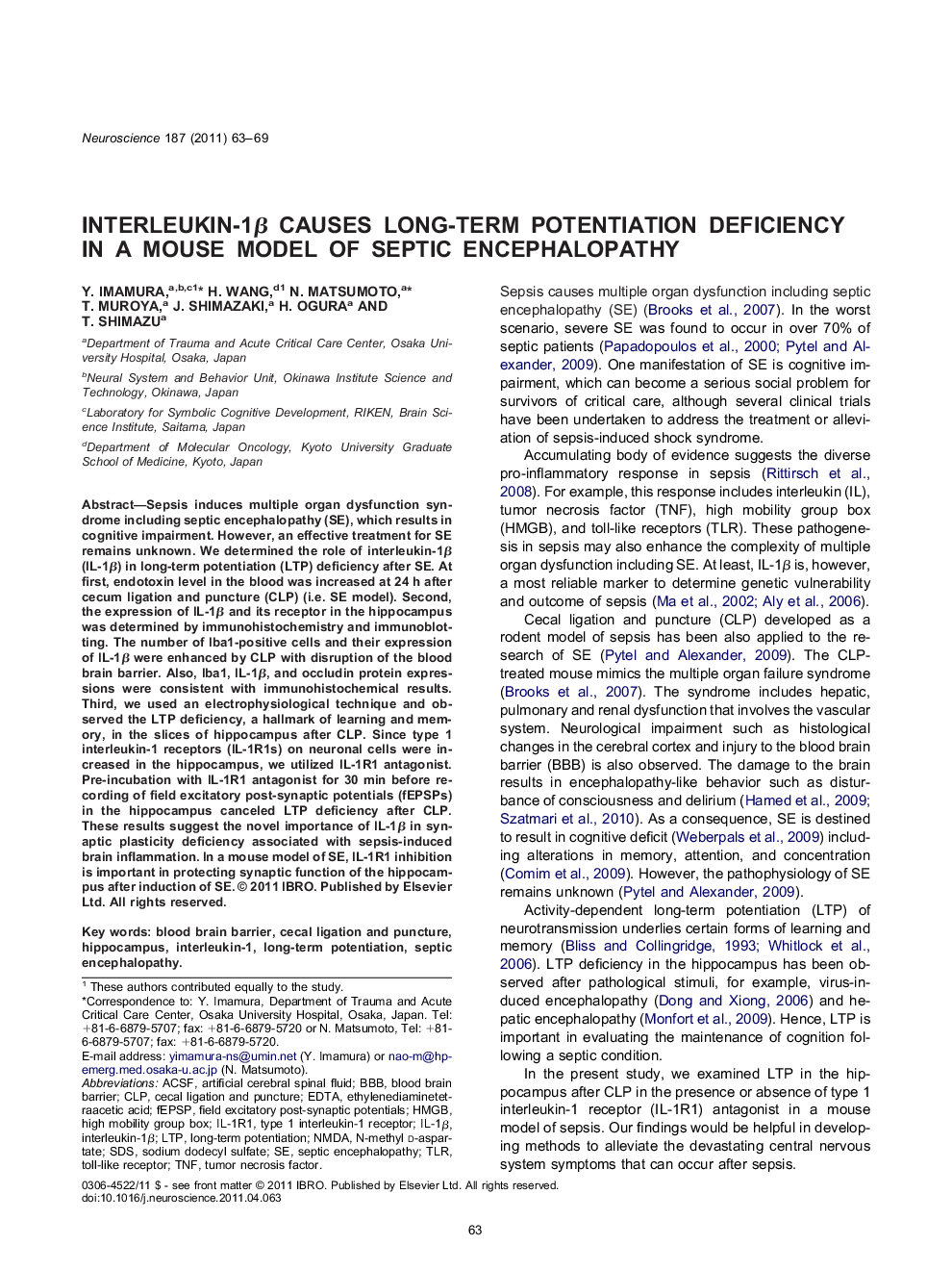| Article ID | Journal | Published Year | Pages | File Type |
|---|---|---|---|---|
| 4338836 | Neuroscience | 2011 | 7 Pages |
Sepsis induces multiple organ dysfunction syndrome including septic encephalopathy (SE), which results in cognitive impairment. However, an effective treatment for SE remains unknown. We determined the role of interleukin-1β (IL-1β) in long-term potentiation (LTP) deficiency after SE. At first, endotoxin level in the blood was increased at 24 h after cecum ligation and puncture (CLP) (i.e. SE model). Second, the expression of IL-1β and its receptor in the hippocampus was determined by immunohistochemistry and immunoblotting. The number of Iba1-positive cells and their expression of IL-1β were enhanced by CLP with disruption of the blood brain barrier. Also, Iba1, IL-1β, and occludin protein expressions were consistent with immunohistochemical results. Third, we used an electrophysiological technique and observed the LTP deficiency, a hallmark of learning and memory, in the slices of hippocampus after CLP. Since type 1 interleukin-1 receptors (IL-1R1s) on neuronal cells were increased in the hippocampus, we utilized IL-1R1 antagonist. Pre-incubation with IL-1R1 antagonist for 30 min before recording of field excitatory post-synaptic potentials (fEPSPs) in the hippocampus canceled LTP deficiency after CLP. These results suggest the novel importance of IL-1β in synaptic plasticity deficiency associated with sepsis-induced brain inflammation. In a mouse model of SE, IL-1R1 inhibition is important in protecting synaptic function of the hippocampus after induction of SE.
▶IL-1β is mainly increased in Iba-1 positive cells and type-1 IL-1 receptor (IL-1R1) is increased in neurons in hippocampus of CLP mice. ▶IL-1R1 is critical for the deficiency of LTP, a hallmark of spatial memory in mice after CLP. ▶These data indicate that IL-1 antagonist may alleviate cognitive deficiency after SE.
